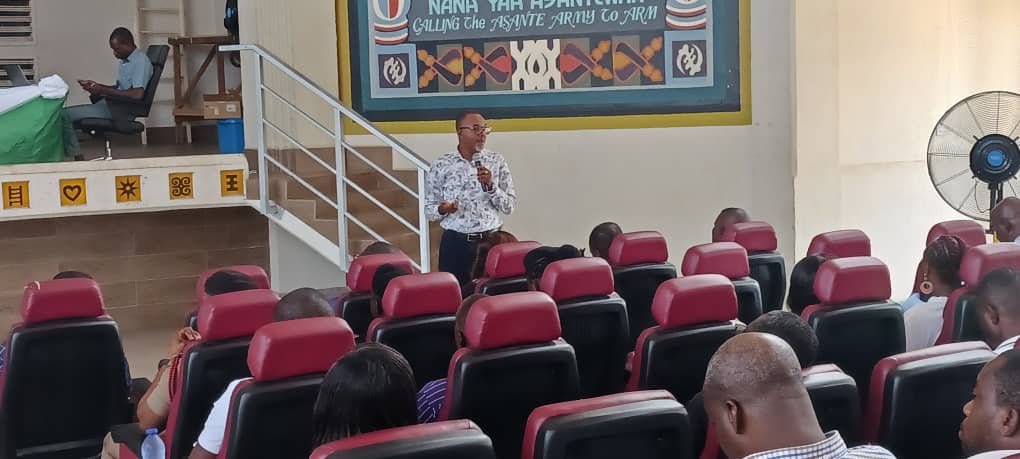As Ghana’s rainy season intensifies, the Ashanti Regional Director of the National Disaster Management Organization (NADMO), Mohammed Nasir Ibrahim, has called for a unified effort to prevent flooding in Kumasi.
Speaking at a recent simulation exercise with the Kumasi Metropolitan Assembly and neighboring municipalities, Mr. Ibrahim emphasized that “prevention is cheaper than response,” highlighting the importance of proactive measures to save lives and resources.
Mr. Ibrahim outlined NADMO’s comprehensive strategy based on four pillars: prevention, preparedness, response, and recovery.
Key components include early warning systems, community education campaigns, capacity building for local disaster teams, improved infrastructure and environmental management, and the prepositioning of relief logistics.
He stressed that desilting choked drains, dredging streams, and proper waste management require collective effort from government agencies, local authorities, businesses, and philanthropists.
In line with these efforts, NADMO has initiated the desilting of 17 major drains in Kumasi to combat severe flooding, citing heavy silt buildup and poor maintenance as significant challenges.
Mr. Ibrahim identified several high-risk areas in Kumasi, including KTI/WAEC, Anloga Junction drains, Sepe Buokrom, South Africa, and the Airport Roundabout, which are already clogged with waste and debris.
He warned that without planning and training; the city would always be reacting after lives are lost. However, with strong preparedness, communities can build resilience, saving both lives and resources.
This call to action comes amid broader discussions on urban flood management in Ghana.
Recent floods in Accra have reignited calls to operationalize a long-planned parametric flood insurance scheme designed to protect urban areas like the capital.
Experts argue that such proactive measures could significantly reduce the impact of future flooding events.
According to Mr. Ibrahim disaster prevention is possible, but only if everyone acts before the storm hits.
Source: Myxyzonline.com





